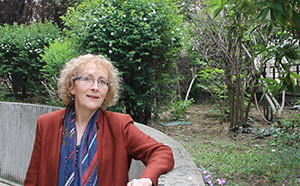Stéphanie Condon
INED researcher tells us about the VIRAGE gender violence survey in France’s overseas départements and territories
(Interview conducted in April 2019)
Following the 2015 VIRAGE survey in metropolitan France, INED conducted another VIRAGE survey in France’s overseas territories in 2018. Why was this decided?

Suite à une forte demande locale, nous avons réfléchi à la faisabilité de conduire cette enquête dans les Outre-mer - différentes enquêtes sont ou ont déjà été reproduites dans ces territoires (l’enquête Fin de vie ou l’enquête sur les violences envers les femmes en France, Enveff).
Un état des lieux des connaissances et des missions exploratoires sur place nous ont permis de prendre la mesure des attentes et des besoins de données de la part des associations travaillant dans la prévention des violences ou le soutien des victimes, des professionnels de santé, mais aussi des institutions en charge des politiques publiques.
Cette enquête a pour objectifs d’actualiser et d’approfondir les connaissances scientifiques et statistiques ; de fournir pour la première fois des données sur la Guadeloupe ; de produire des bases de données représentatives à l’échelle des populations locales.
How was this survey conducted?
It wasn’t easy to set up this multi-site survey. We had to find funding, a service to run the telephone interviews, and we had to keep long-distance tabs on three data collection fields simultaneously: Guadeloupe, Martinique and Reunion. There was also the work of adapting the VIRAGE protocol and questionnaire. All this required substantial assistance from INED’s different services, particularly the Surveys department.
As we do not have INED researchers and technicians on site we set up local steering committees composed of institutional, association, professional and scientific actors in each of the three territories. We hired the polling institute IPSOS Outre-mer, which has call center facilities in Reunion and the Caribbean. 8,700 people (71% of them women) aged 20 to 69 living on a regular basis in Reunion, Guadeloupe or Martinique were questioned for the survey.
Are there specific hypotheses on acts of gender violence in these territories?
Consistent with earlier surveys in France and elsewhere, our main objective here was to measure the prevalence of violence in gender relations; to describe the context, types, and frequency of these acts of violence; and to identify their effects on individuals’ daily lives and trajectories. We also tried to specify risk factors, or at least factors associated with gender-related acts of violence.
Social workers in France’s overseas départements and territories often cite a close tie between precarity and violence in discussions of the living conditions of lone mothers. Our survey is an opportunity to analyze this tie at the local scale, and we hope to be able to contribute thereby to better overall understanding of it. Likewise, we will show the contradictory relations between religion and violence in a context of strong religiosity and highly diverse practices. Moreover, violence often occurs in population groups whose members’ personal and family trajectories include an experience of migration, either in connection with metropolitan France or from neighboring islands. And we know that migration can make people more vulnerable to discrimination and violence than they otherwise would be, and that it can be a response to a violent situation.
Our analytic approach will be intersectional, the point being to offer a perspective that is different from culturalist views of violence, especially given the stigmatization of certain groups.
The first findings of the Reunion VIRAGE survey have already confirmed effects related to the strong inter-acquaintance that characterizes island contexts: victims of violence in public places, particularly sexual violence, are much more likely on average to know the perpetrators than in metropolitan France.
